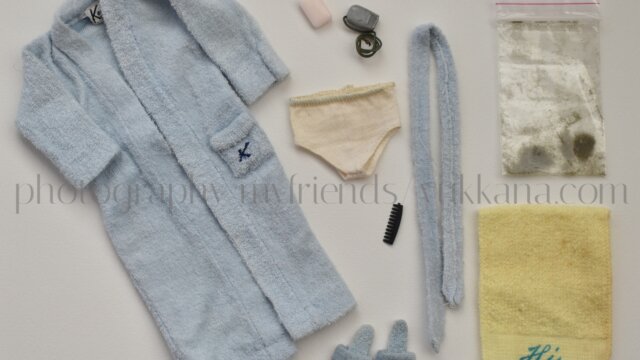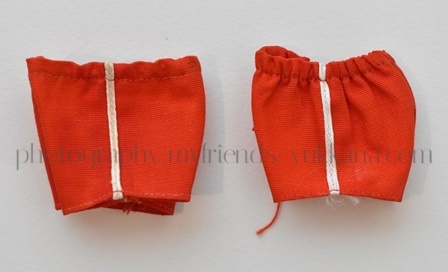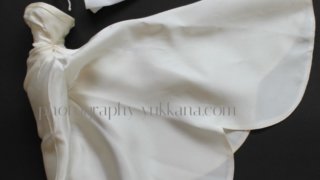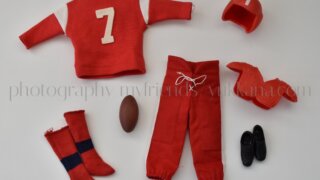1961 #787 TUXEDO: jacket, trousers, dress shirt, bow tie, cummerbund, socks, shoes, corsage, case $5.00
This outfit is one of four outfits with ‘full-lining jacket'(#785 Dream Boat/#786 Saturday Date/#787 Tuxedo/#1401 Special Date).
Tuxedo trousers has more sewing steps than other normal trousers.
Jacket-16 patterns :black fabric(7), black lining fabric(5), black silk satin fabric(collar/facing/4), boutonniere, label, 1 button/full lining, 2 darts,1 button hole stitch,1 button loop(thread),2 decorative pockets
Trousers-4 patterns: black fabric(4), side-stripes(tape/2), YKK zipper/fly stitching
Dress shirt-11 patterns :white cotton fabric(9), panel fabric(2) label, 2 snaps, 3 pearls/long sleeved, cuffs, york, sewn-collar
Cummerbund-1 pattern:burgundy silk fabric(1), black elastic band
Bow tie-2 patterns:burgundy silk fabric(2), elastic band
Socks-2 patterns : black nylon fabric(1/single)
The average of hourly wage at 1961 was $1.25, this outfit was expensive at the time.
Also-the variation Tuxedo is shown below. the panel of the shirt use nylon tricot fabric which were used for 1961-64 #984 American Airlines Stewardess’s blouse/1965 #1414 Holiday instead of normal fabric. the fabric is used up side down(Mattel/KokusaiBoeki often ignored fabric direction, in fact the direction opposite is used on the back of my Holiday shirt).
The jacket belongs to the variation tuxedo is a little broken and there are some moth-holes on the collar, but I think the fabric used for the collar is a regular fabric. the sewing is very good like early Barbie product. the bow-tie is sewn early thick rubber band and unique zipper(smallest YKK zipper ever) has been sewn on the trousers(Thank you Anthony for finding out the zipper on my early Ken trousers. these zipper seems to be also sewn on some of the really early Barbie clothes…).
1961 #787 TUXEDO:ジャケット、スラックス、ドレスシャツ、蝶ネクタイ、カマバンド、ソックス、靴、コサジュ、ケース $5.00
スラックスにスナップが付かない
この衣装は総裏地のジャケットを持っている4つの衣装の1つです(#785 Dream Boat/#786 Saturday Date/#787 Tuxedo/#1401 Special Date)。
Tuxedoのスラックスは通常のスラックスよりもパターン/工程数が多いです。
ジャケット-パターン16:黒色の生地(7)、黒色の裏地(5)、黒色のシルクサテン生地(襟と見返し/4)、ブートニア、ラベル、ボタン1/総裏地、ダーツ2、ボタンホールステッチ1、ボタンループ1、ポケット2
スラックス-パターン4:黒色の生地(4)、YKKジッパー、側章(テープ/2)
ドレスシャツ-パターン11:白色のコットン生地(9)、パネル生地(2)、スナップ2、パール3、ラベル/長袖、カフス、ヨーク
蝶ネクタイ-パターン2:ワイン色のシルクサテン生地(2)、ゴム
カマバンド-パターン1:ワイン色のシルクサテン生地(1)、黒いゴム
ソックス-パターン2:黒色ナイロン生地(1/片方)
1961年当時の平均的な時給は1.25ドルでしたので、この衣装は高価でした。
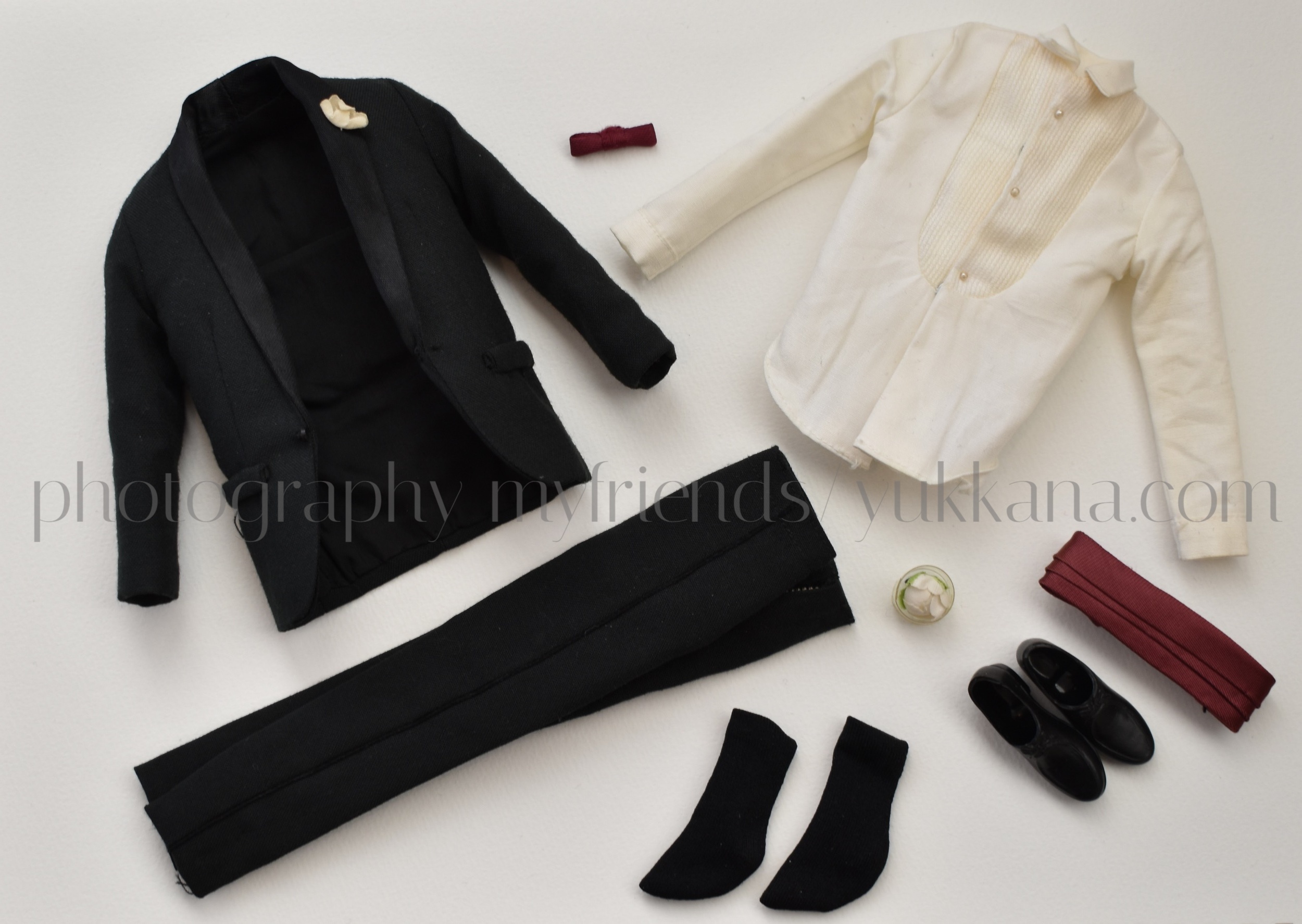
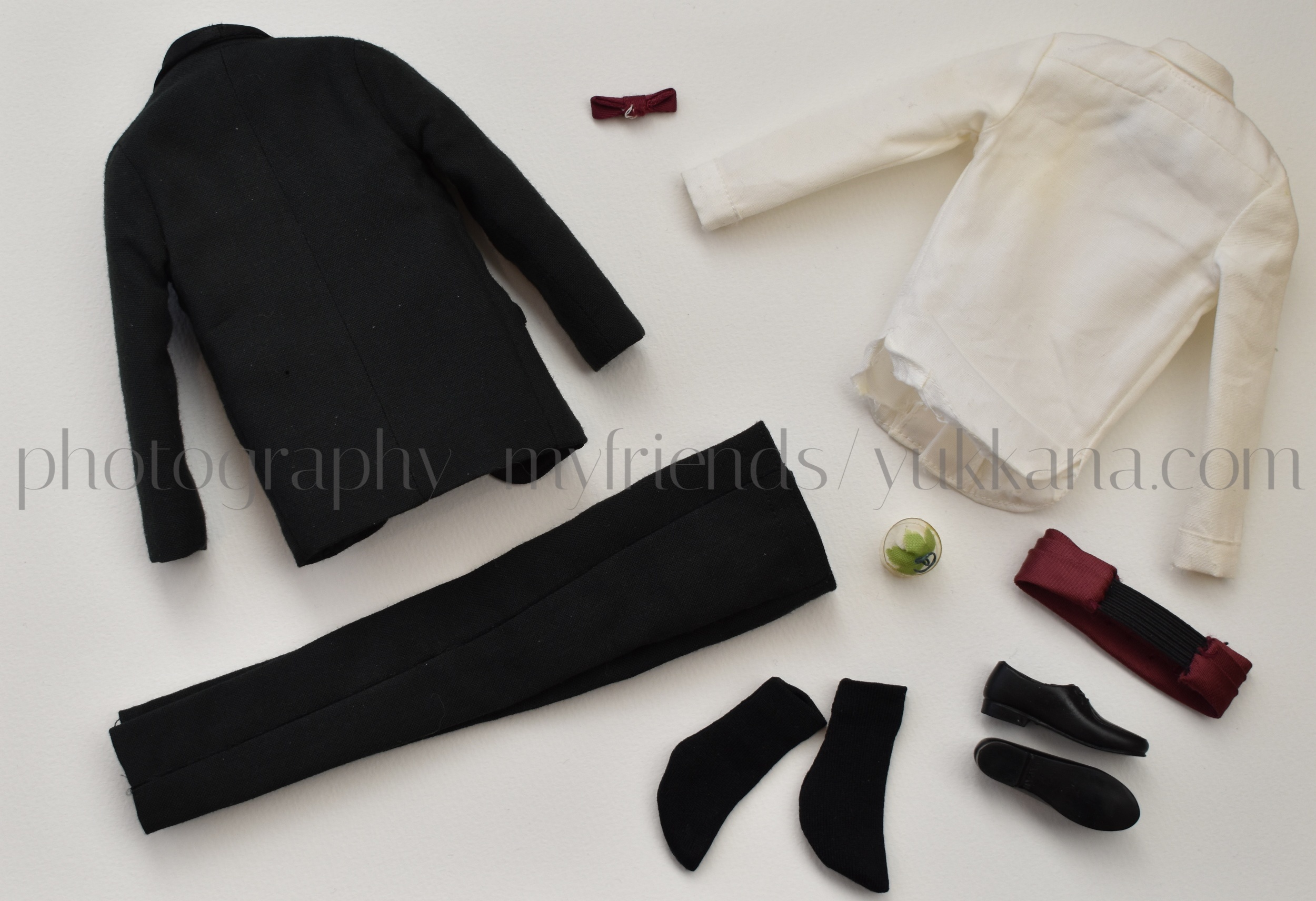
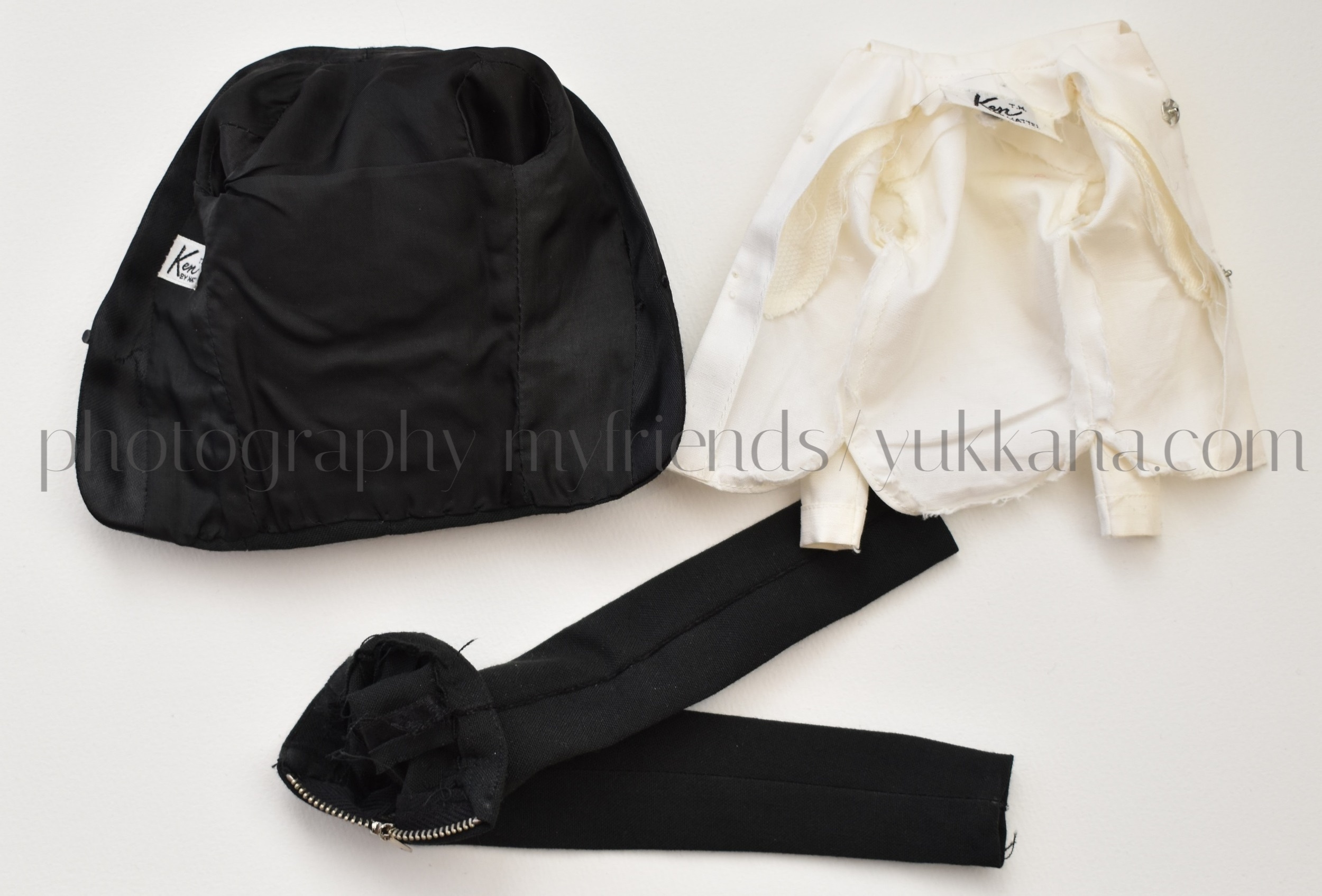
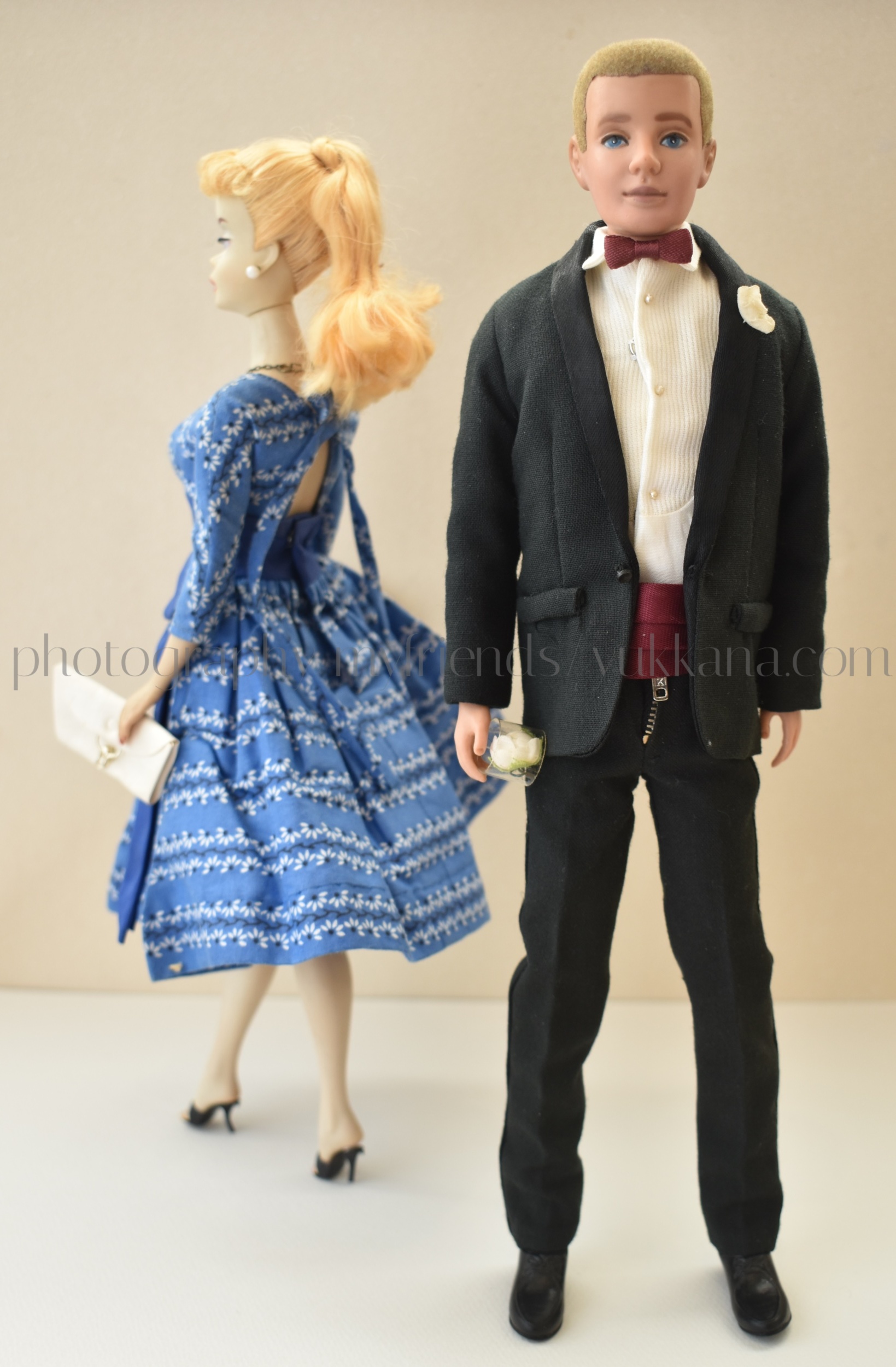 1960 #850 blonde ponytail Barbie in 1960-62 #978 Let’s Dance(complete)/1961 #750 light brownette flocked hair Ken in 1961 #787 Tuxedo
1960 #850 blonde ponytail Barbie in 1960-62 #978 Let’s Dance(complete)/1961 #750 light brownette flocked hair Ken in 1961 #787 Tuxedo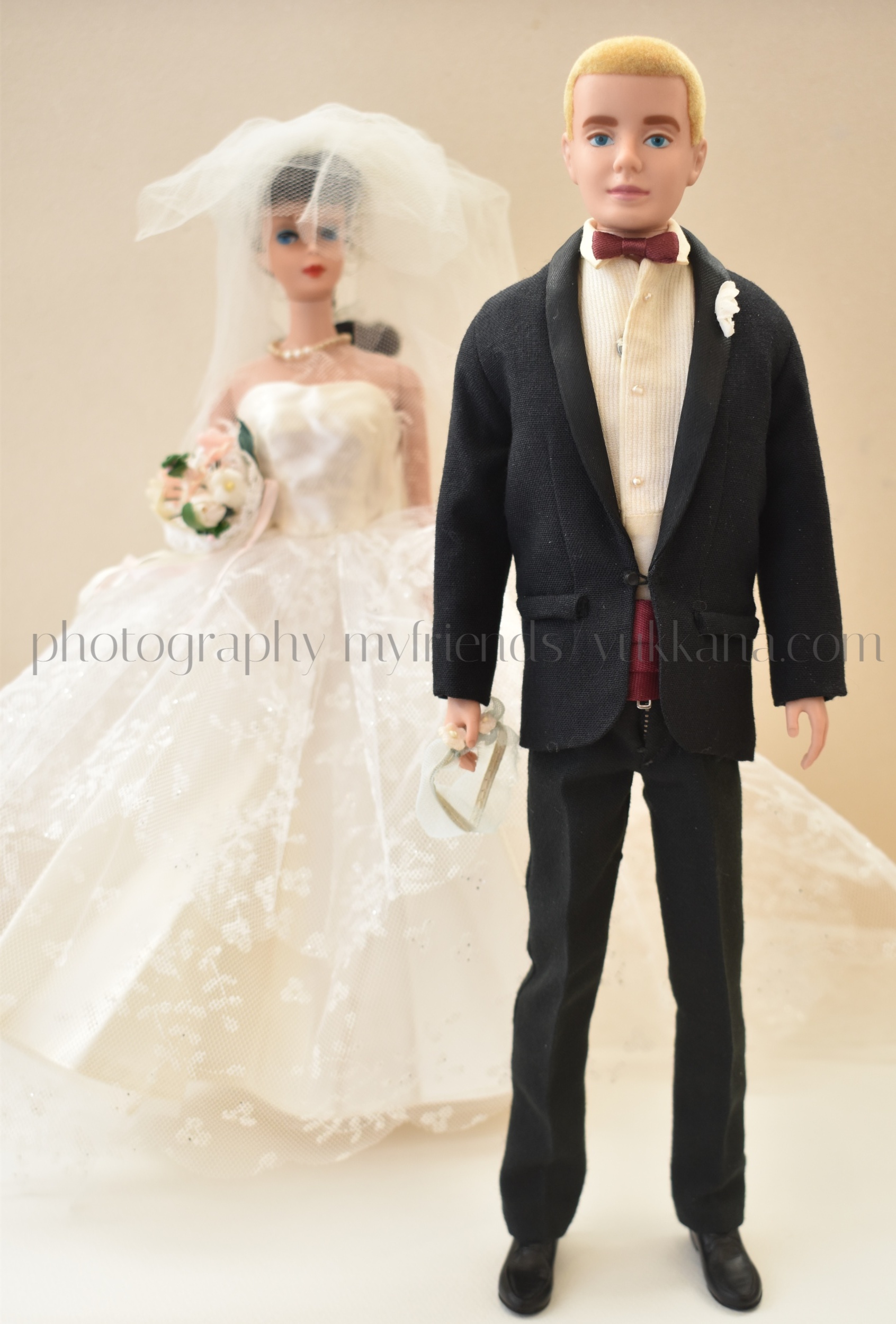 1961 #850 brunette ponytail Barbie in 1959-1962 #972 Barbie ‘Wedding Day’ Set(complete)/1961-62 #750 blonde flocked hair Ken in 1961 #787 Tuxedo with her garter.
1961 #850 brunette ponytail Barbie in 1959-1962 #972 Barbie ‘Wedding Day’ Set(complete)/1961-62 #750 blonde flocked hair Ken in 1961 #787 Tuxedo with her garter.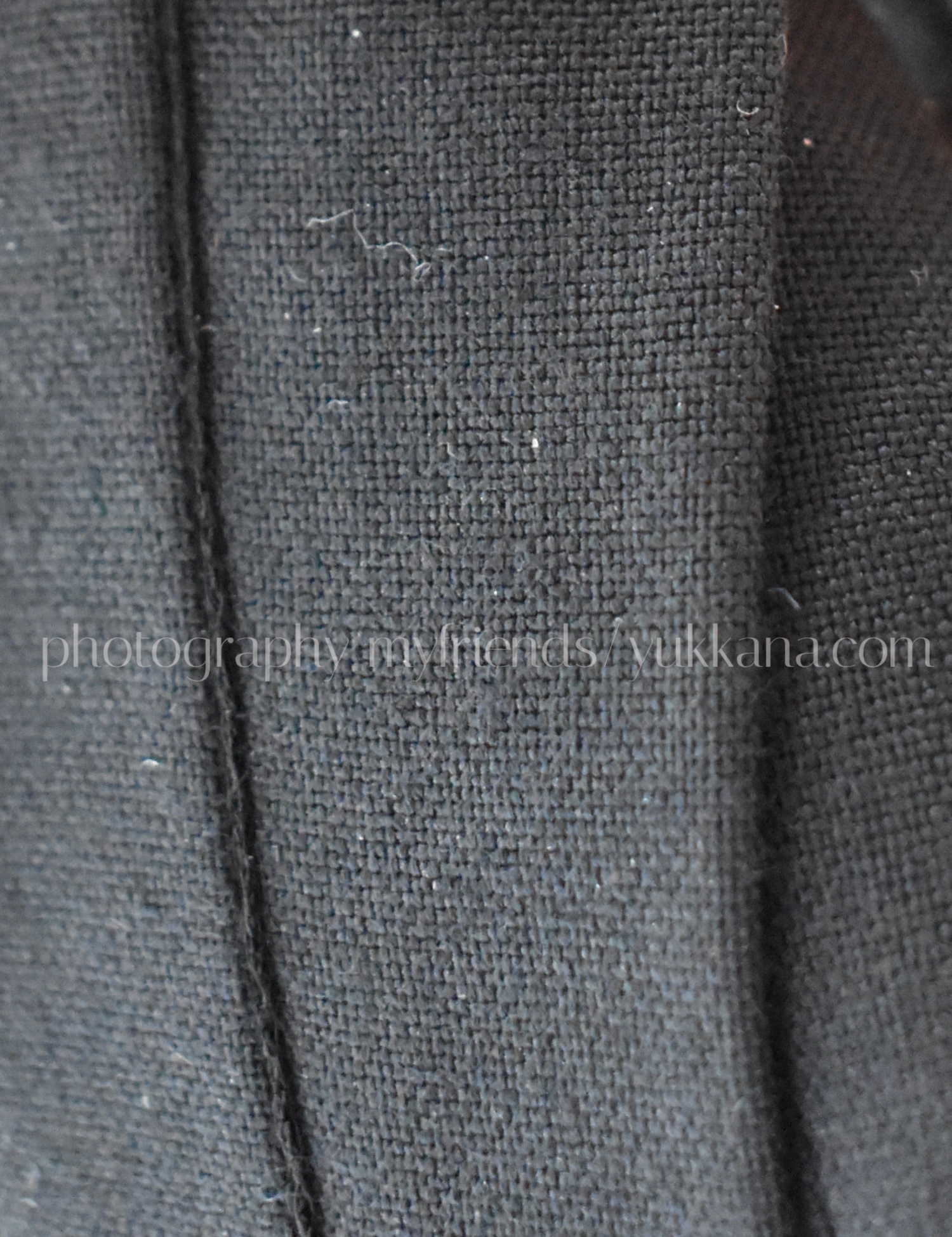
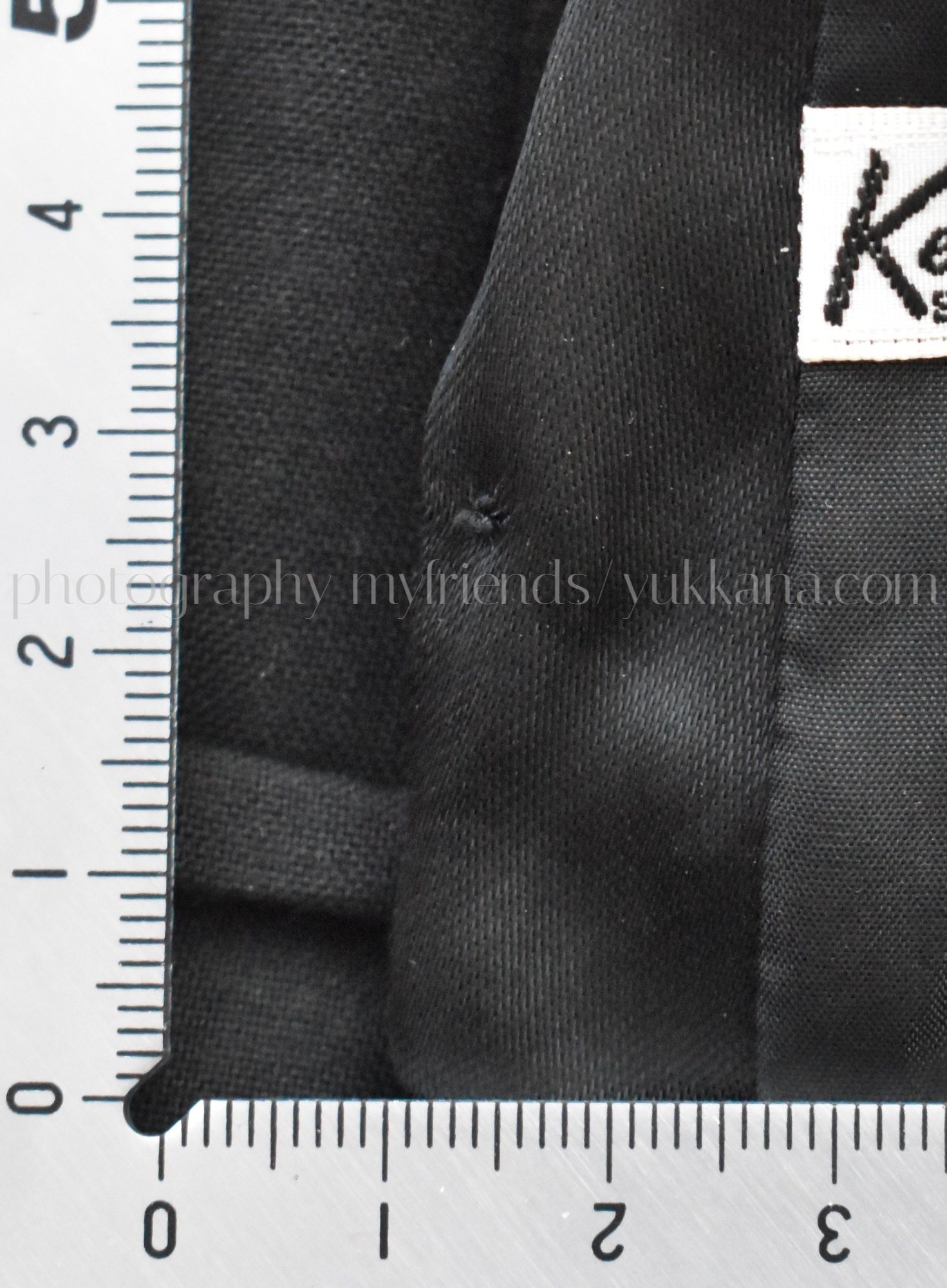
VARIATION TUXEDO SHIRT
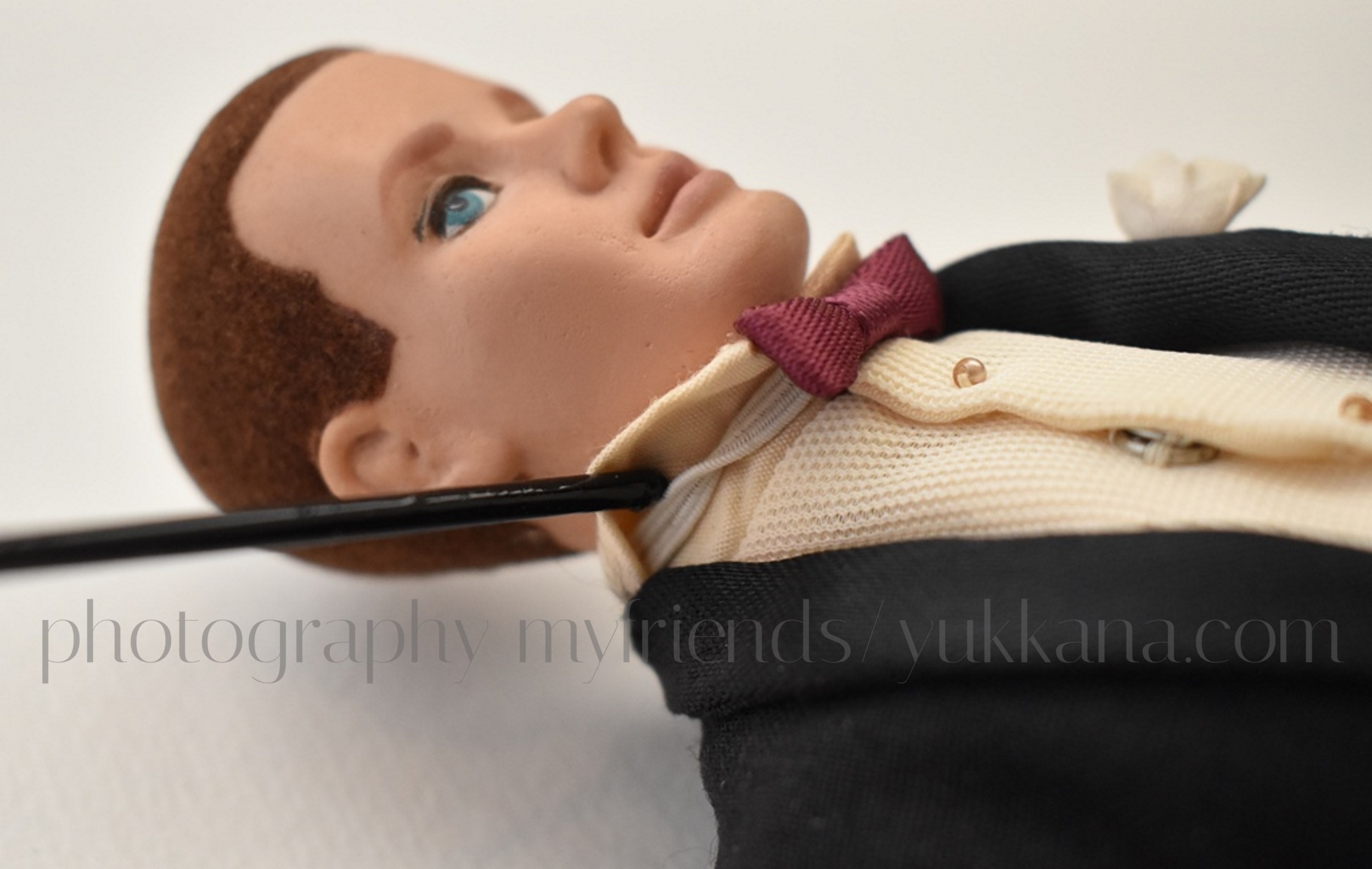
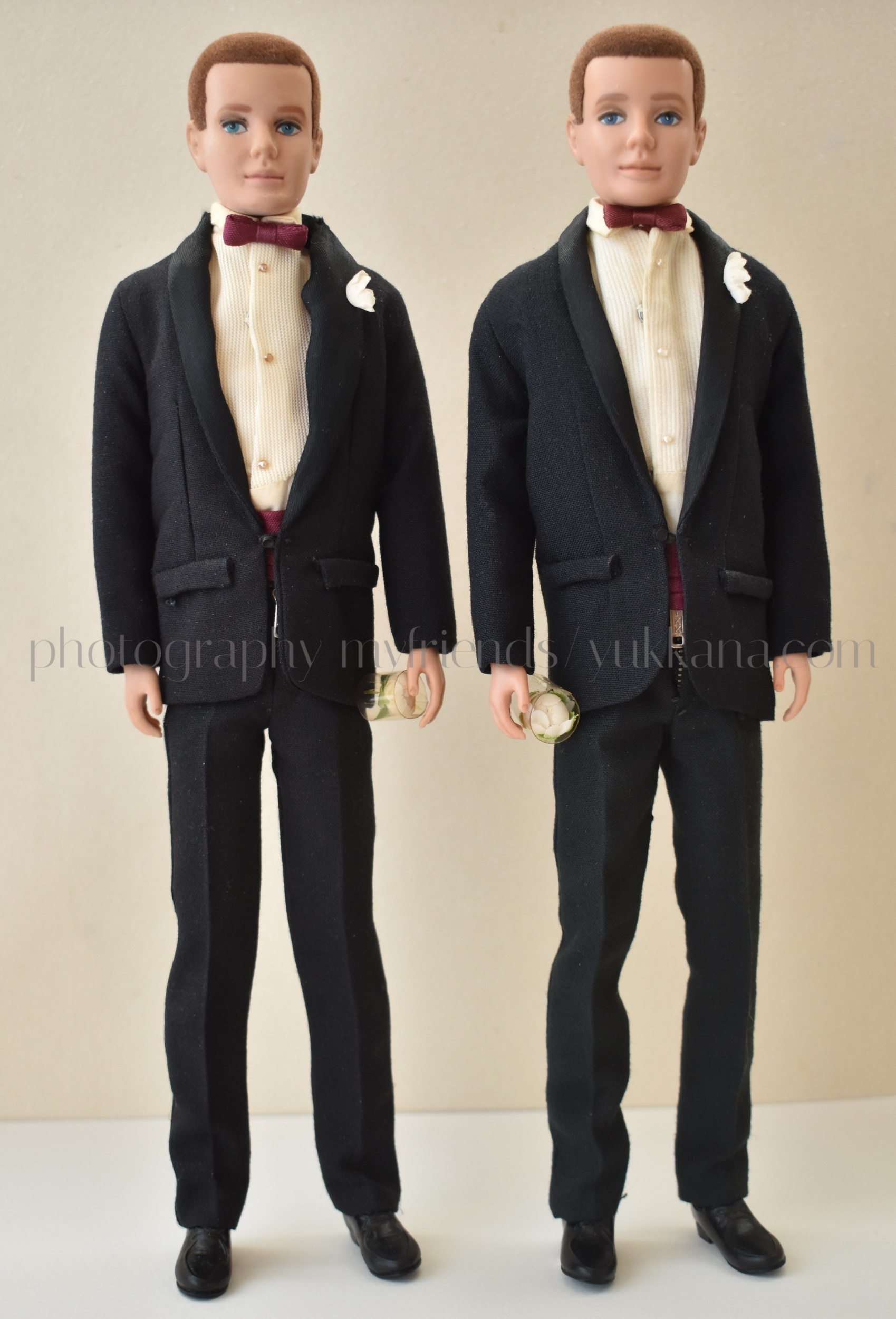 1961 #750 dark brownette flocked hair Ken in #787 Tuxedo(variation shirt)/1961 #750 dark brownette flocked hair Ken in 1961 #787 Tuxedo.
1961 #750 dark brownette flocked hair Ken in #787 Tuxedo(variation shirt)/1961 #750 dark brownette flocked hair Ken in 1961 #787 Tuxedo.画像左の、左側のケンのタキシードはヴァリエーションです。シャツのパネルに通常の生地ではなく1961-64 #984 American Airlines Stewardessのブラウス/1965 #1414 Holidayと同じナイロンの生地が使われています。またナイロン生地は上下逆に使われています、マテル/国際貿易社は生地の方向を無視することがあり、このタキシードシャツだけでなく、実際に私のHolidayのシャツの背中には上下逆が使われています。
このタキシードのジャケットは襟が壊れているのですが(虫食いの穴がある)、通常と同じ生地が使われているようです。とても繊細な縫製で注意深く作られています。蝶ネクタイにはオリジナルのゴム(初期の太いタイプ)がついてます。また、スラックスにはとても小さいYKKジッパーが使われています。これは通常使われたYKKジッパーよりもサイズが小さく、このサイズは初期のバービー製品の1部にも見つかります。
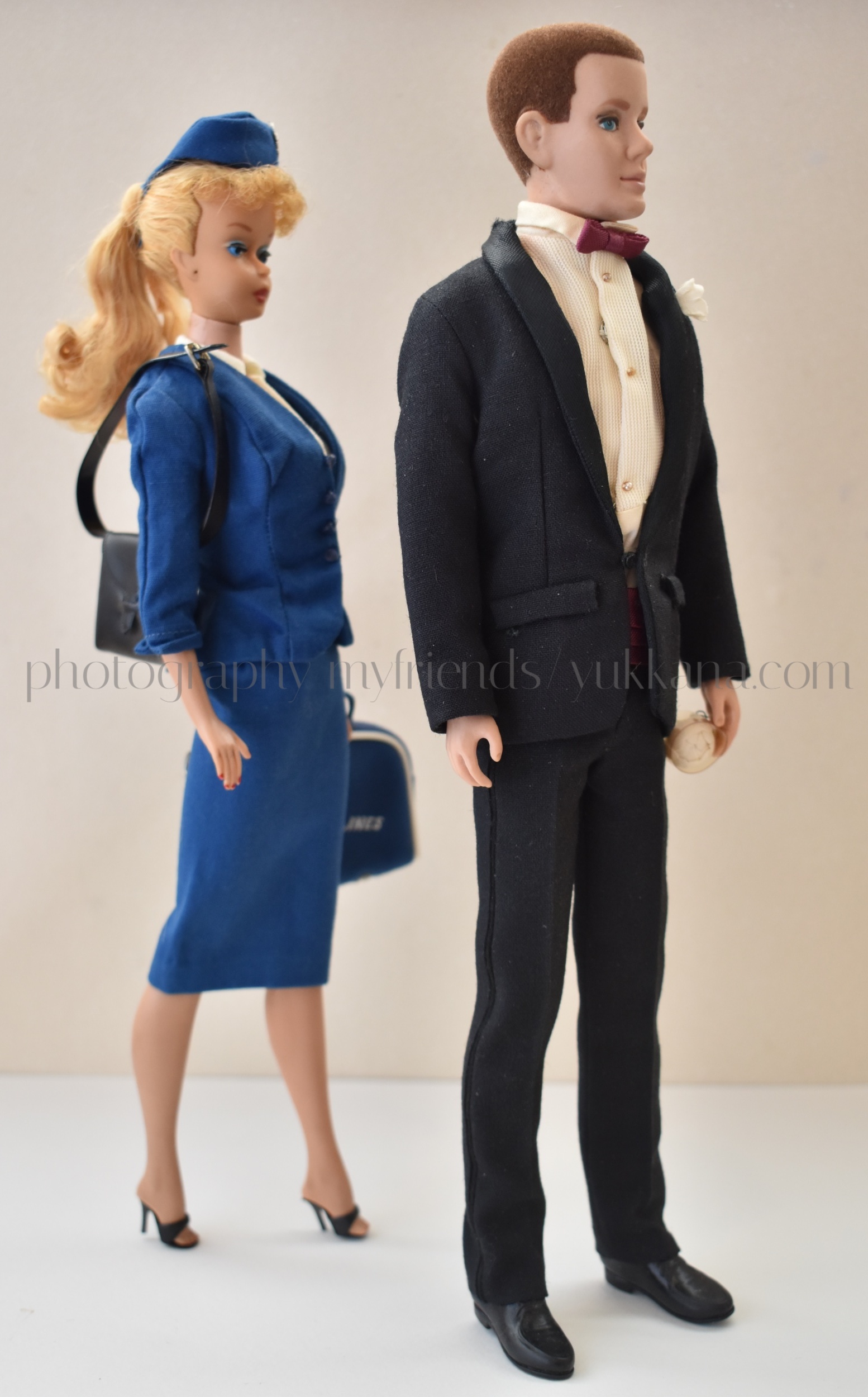 1961 #850 blonde ponytail Barbie in 1961-64 #984 American Airlines Stewardess(complete) and Ken in the variation Tuxedo. the same nylon fabric is used for their clothing.
1961 #850 blonde ponytail Barbie in 1961-64 #984 American Airlines Stewardess(complete) and Ken in the variation Tuxedo. the same nylon fabric is used for their clothing.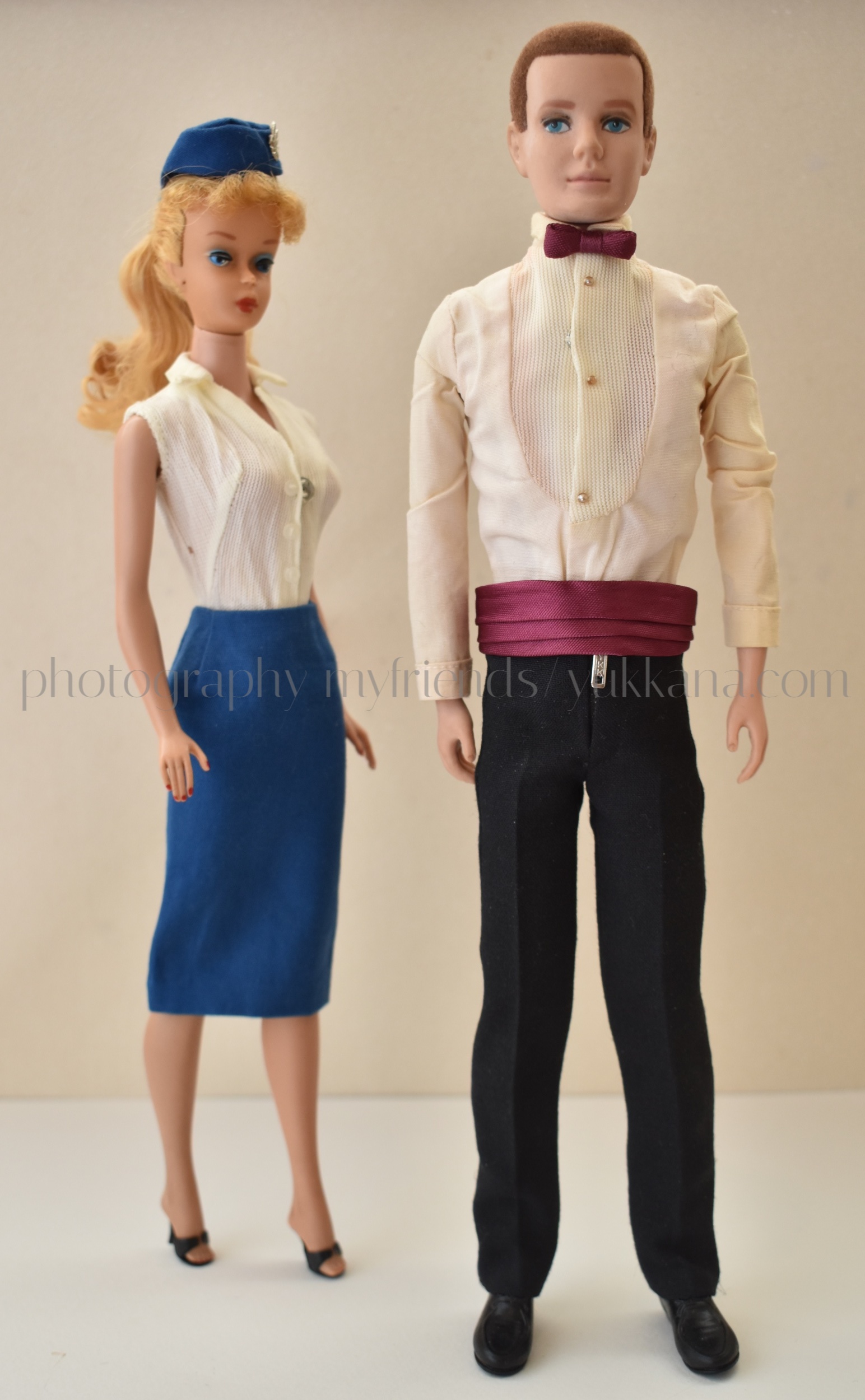
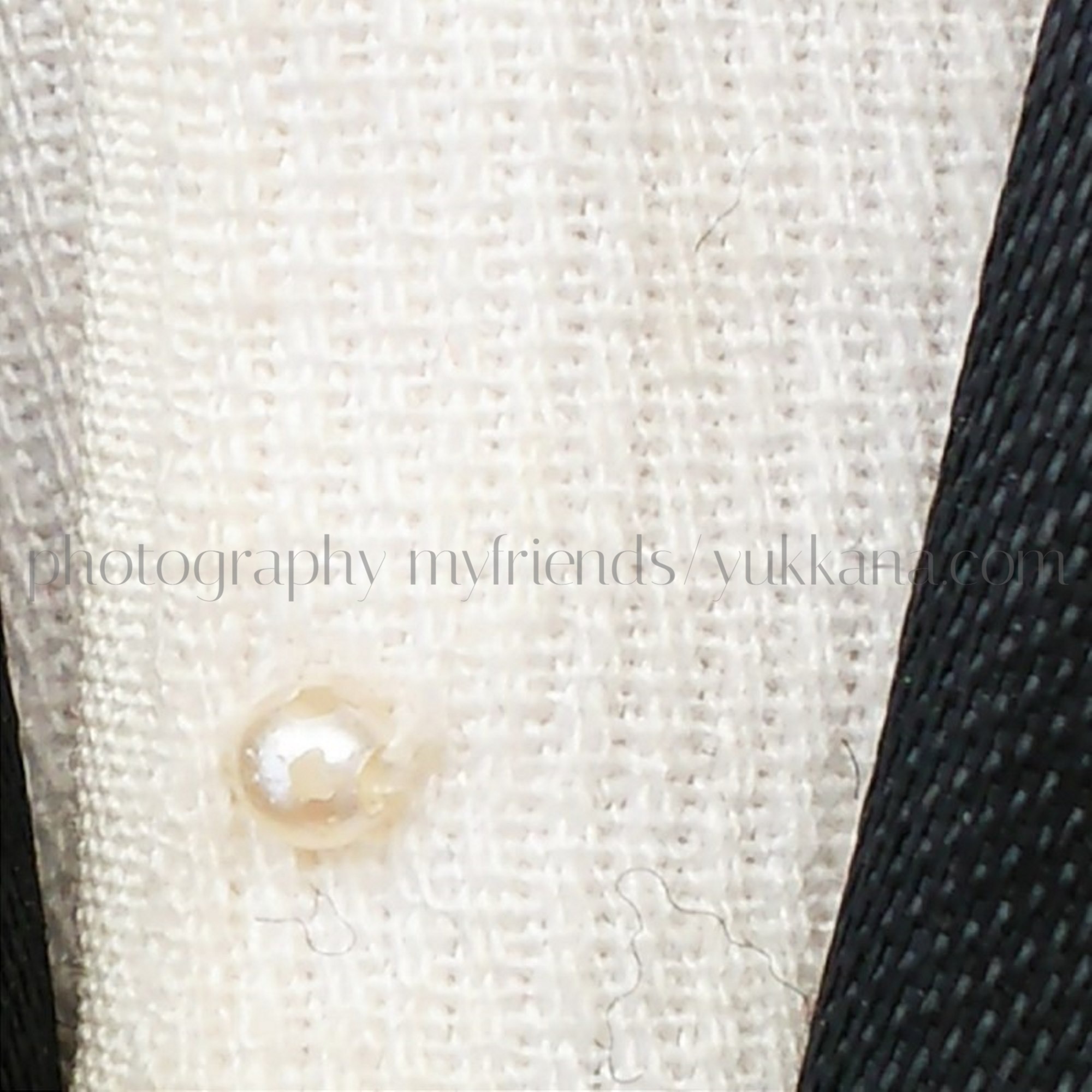 the normal fabric version
the normal fabric version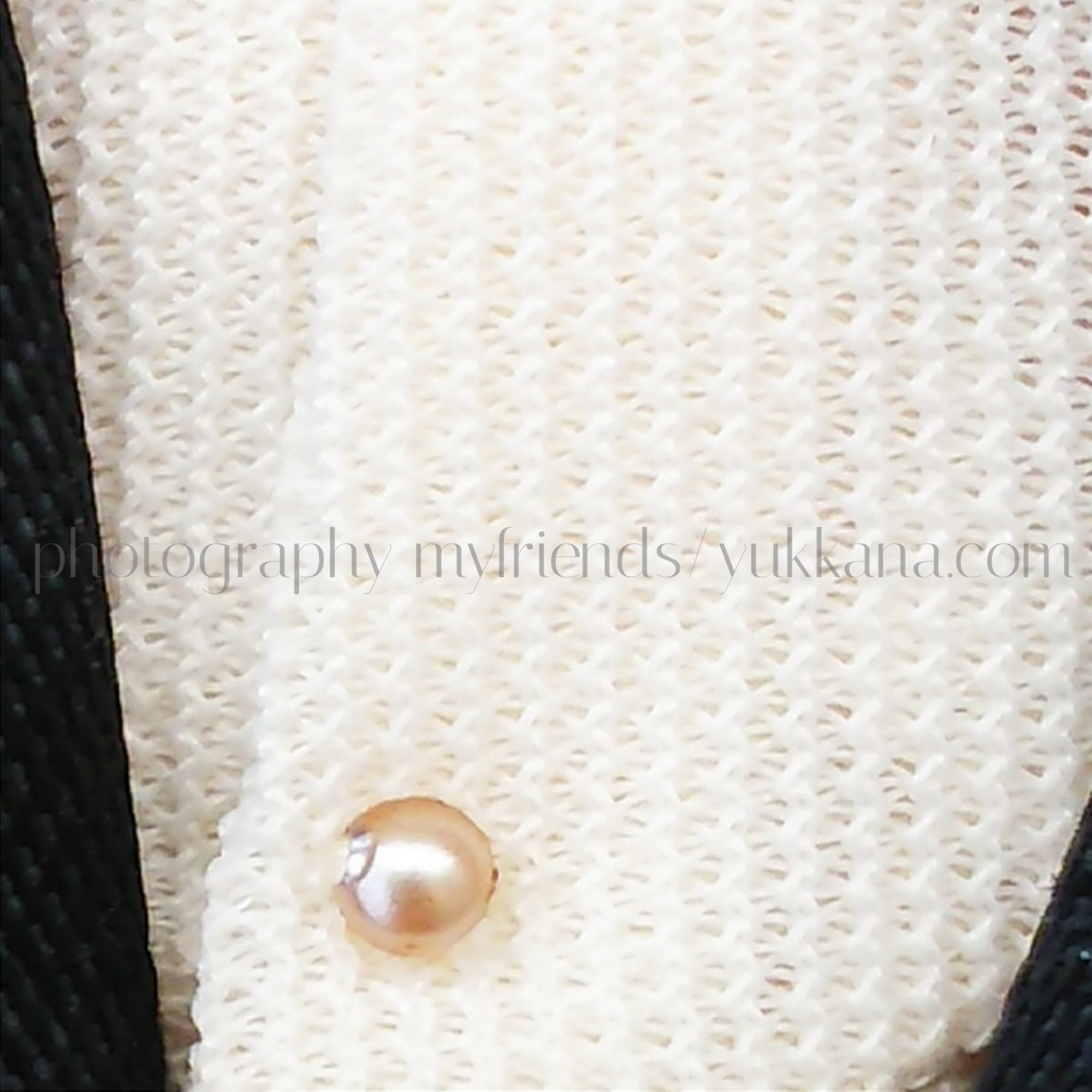 the nylon fabric version(this nylon tricot fabric is used up side down)
the nylon fabric version(this nylon tricot fabric is used up side down)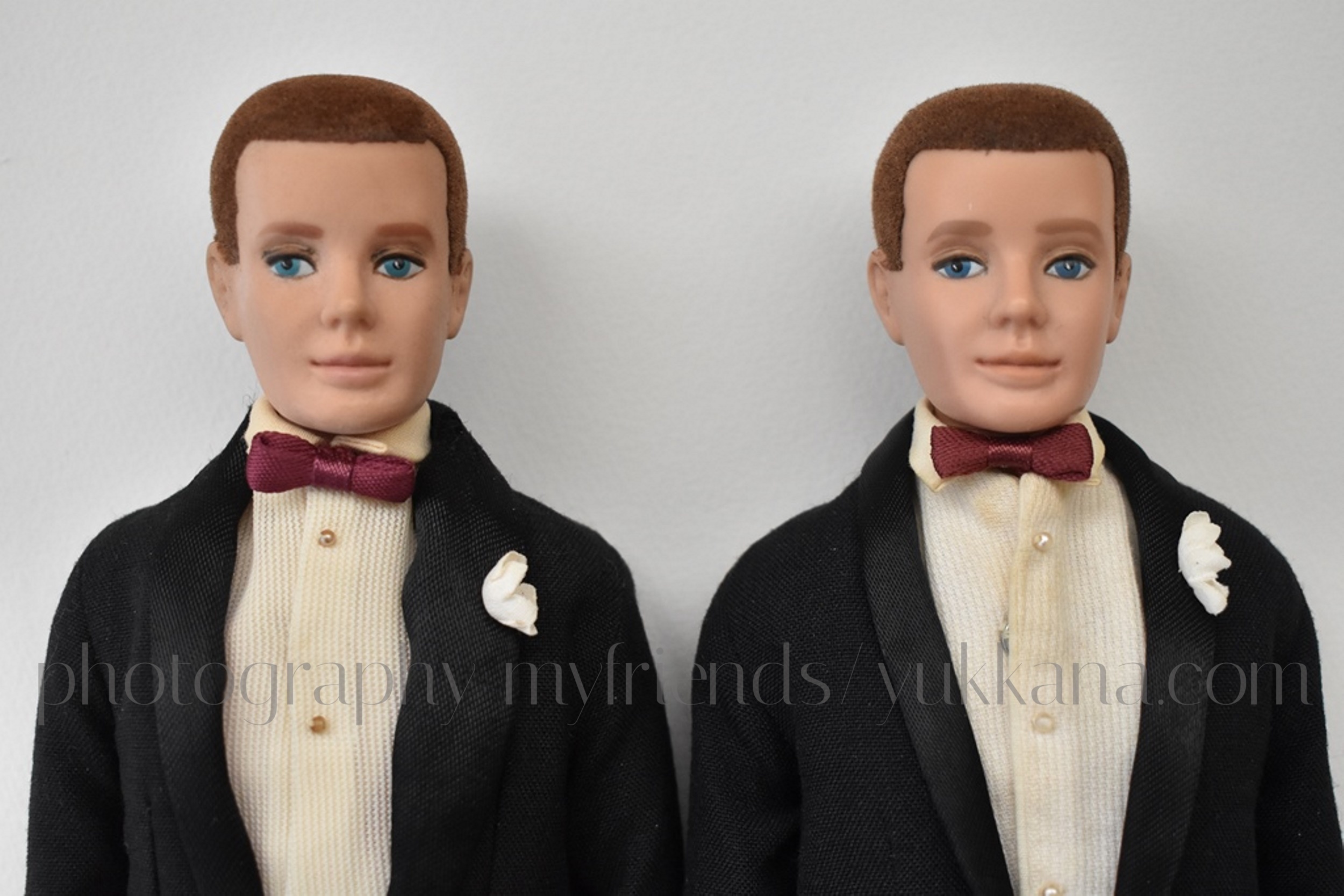 variation shirt/normal version shirt
variation shirt/normal version shirt
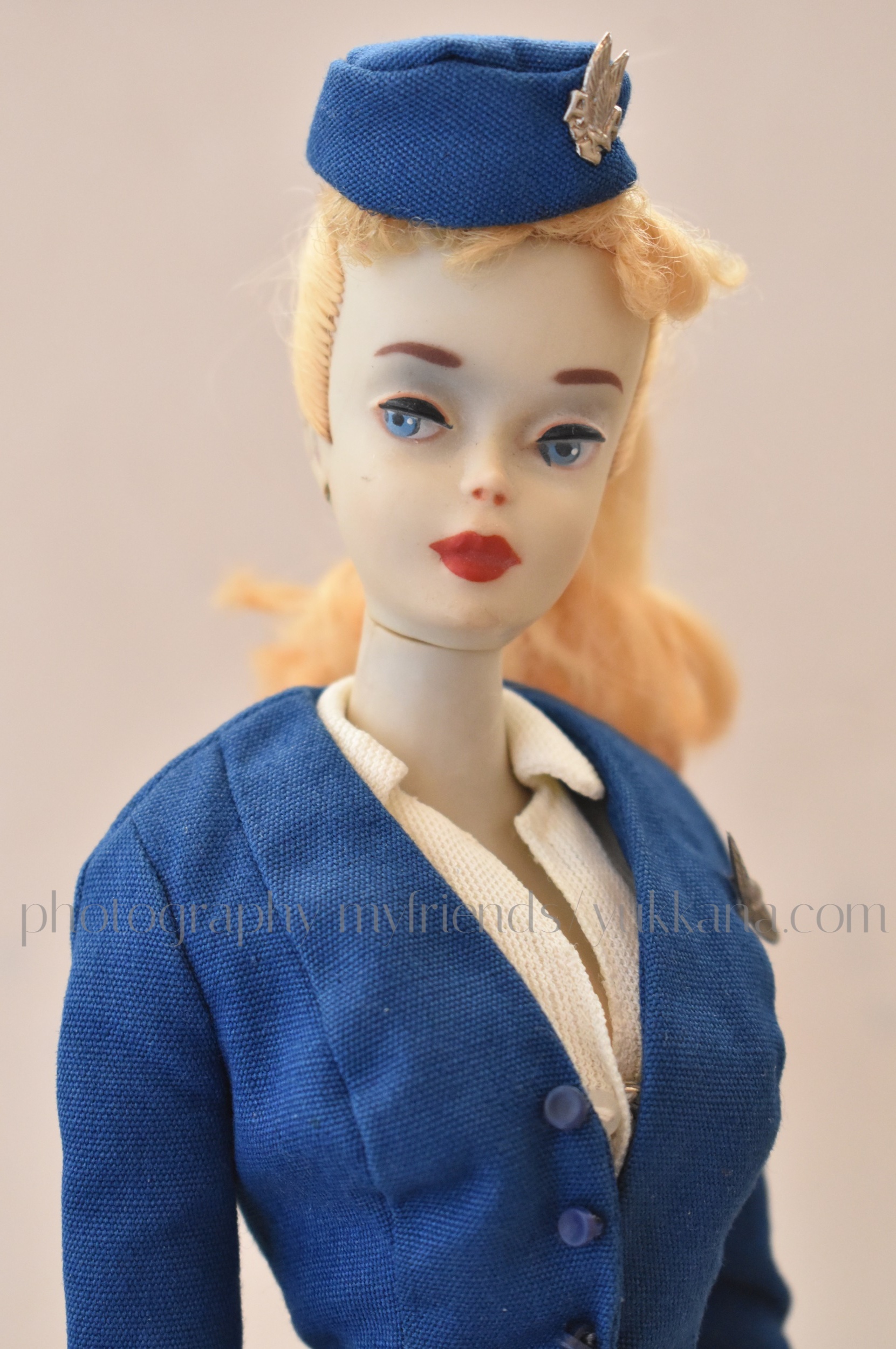
The impression of the fabric changes a little depending a lot, fiber, dyeing.. though these fabrics has the same woven textures.
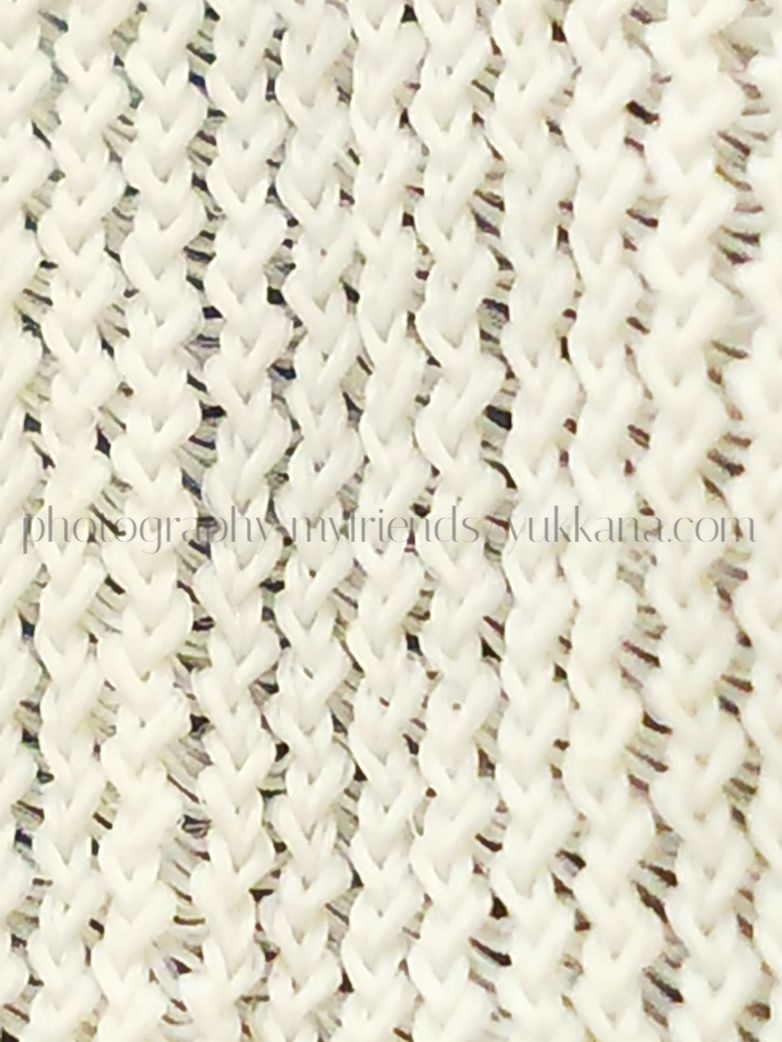 1961-64 #984 American Airlines Stewardess blouse. my blouse has shrunk due to aging and washing
1961-64 #984 American Airlines Stewardess blouse. my blouse has shrunk due to aging and washing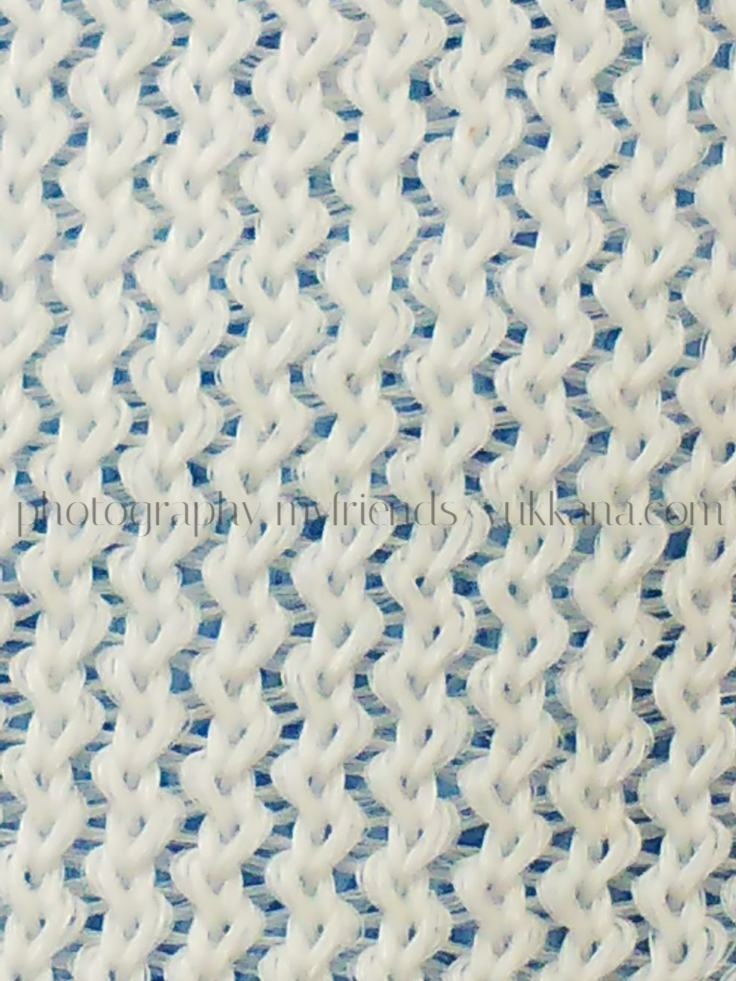 1965 #1414 Holiday shirt
1965 #1414 Holiday shirt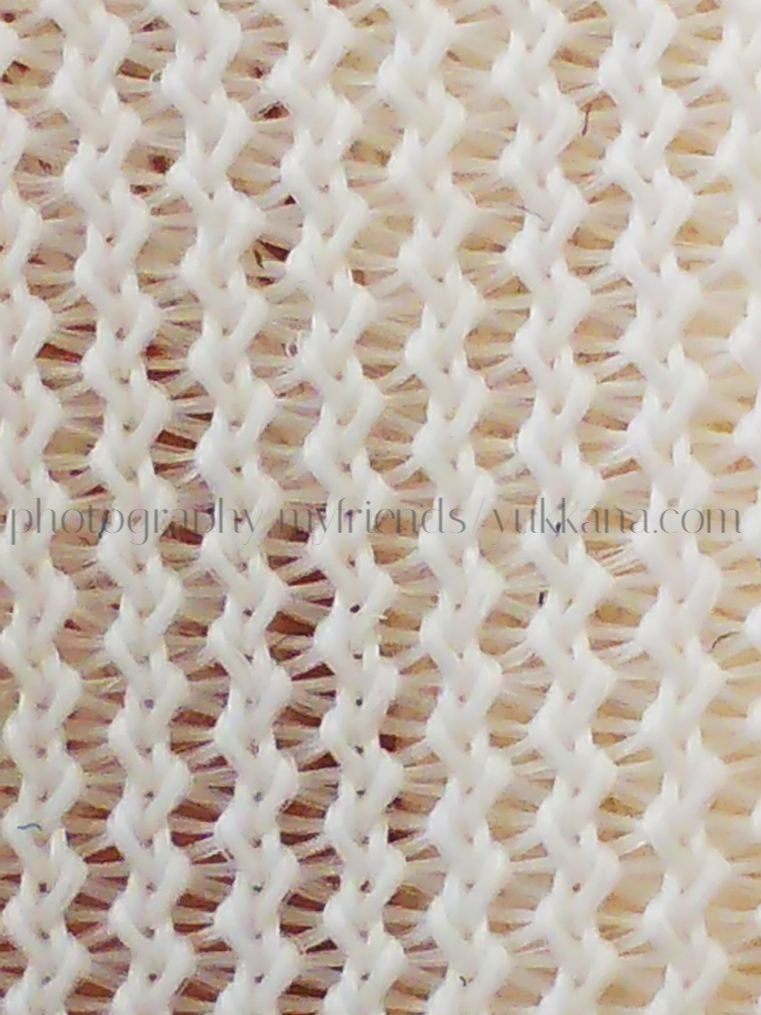 the rare tuxedo shirt . photo1
the rare tuxedo shirt . photo1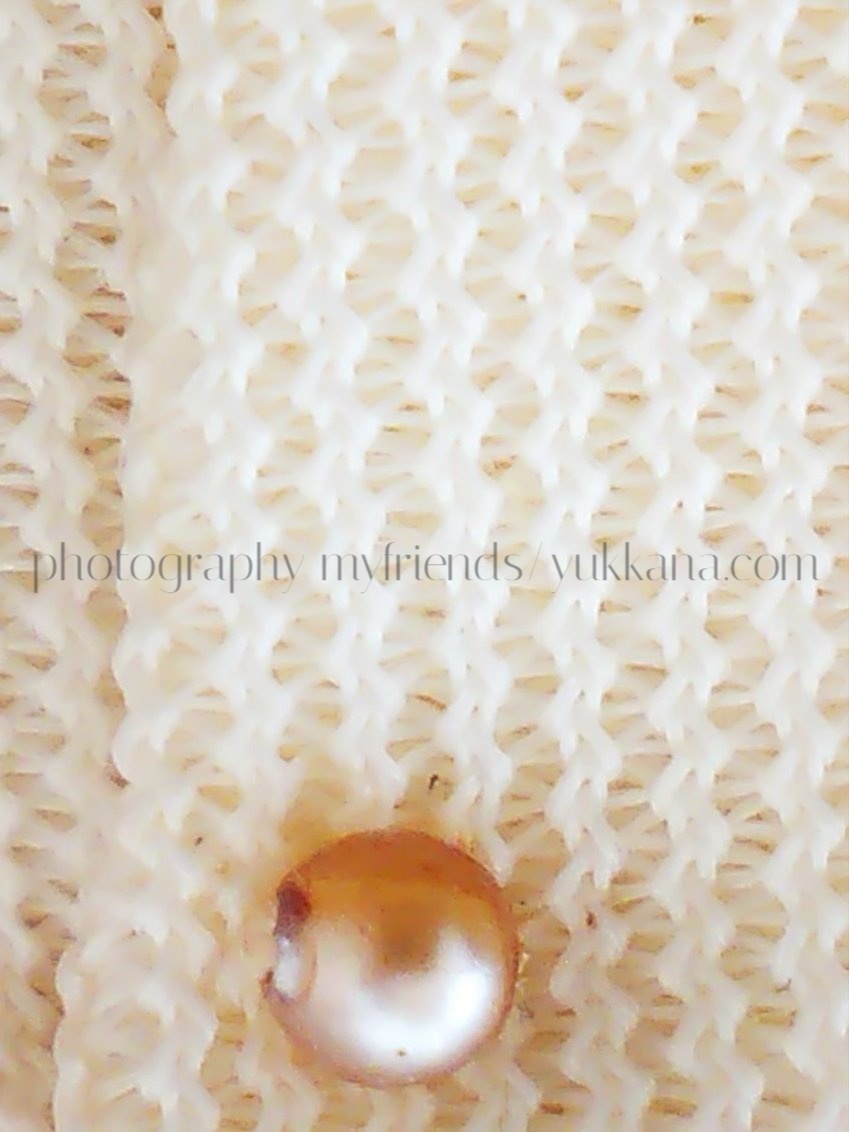 the rare tuxedo shirt. photo2, ‘up side down’
the rare tuxedo shirt. photo2, ‘up side down’

